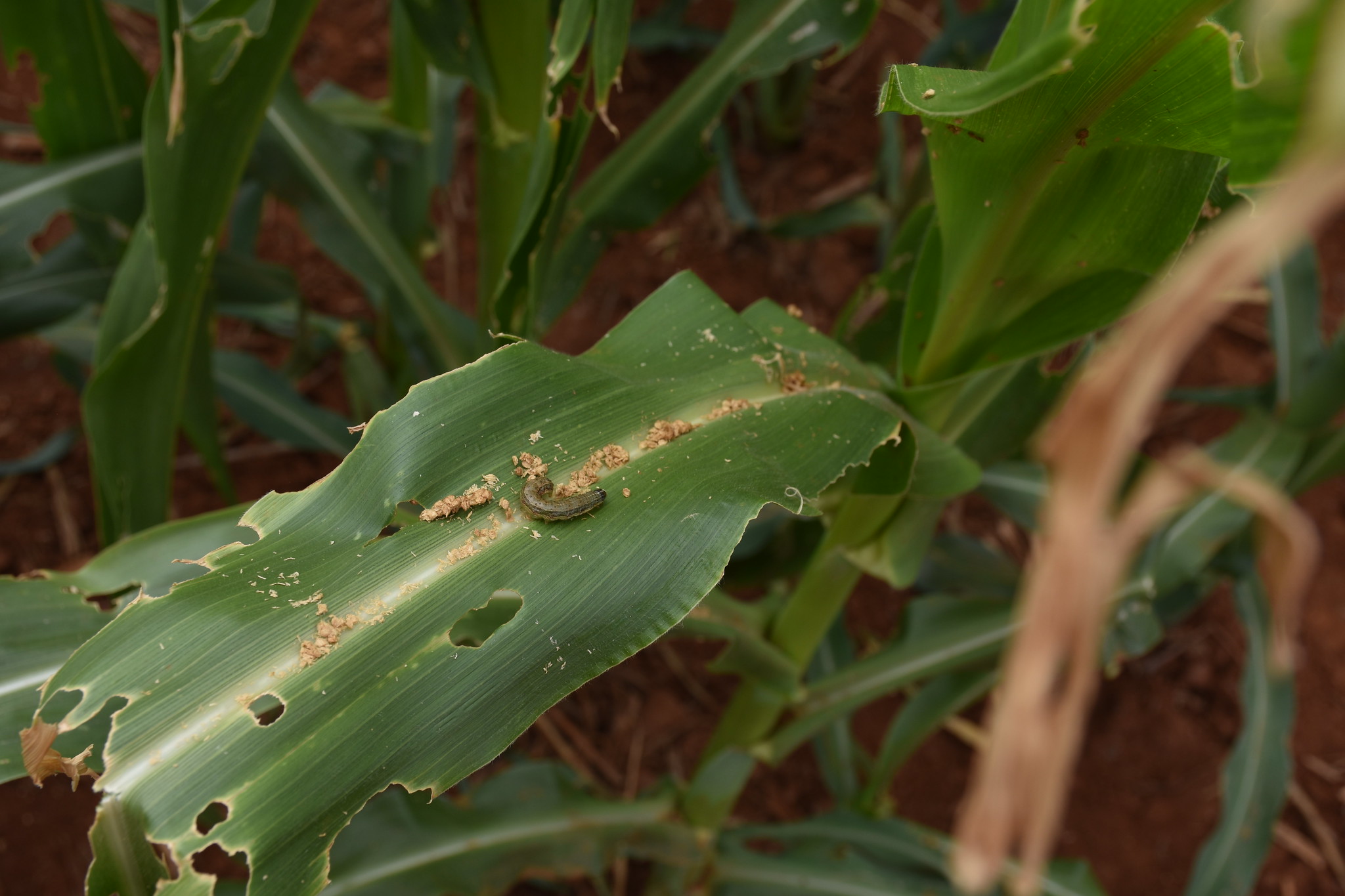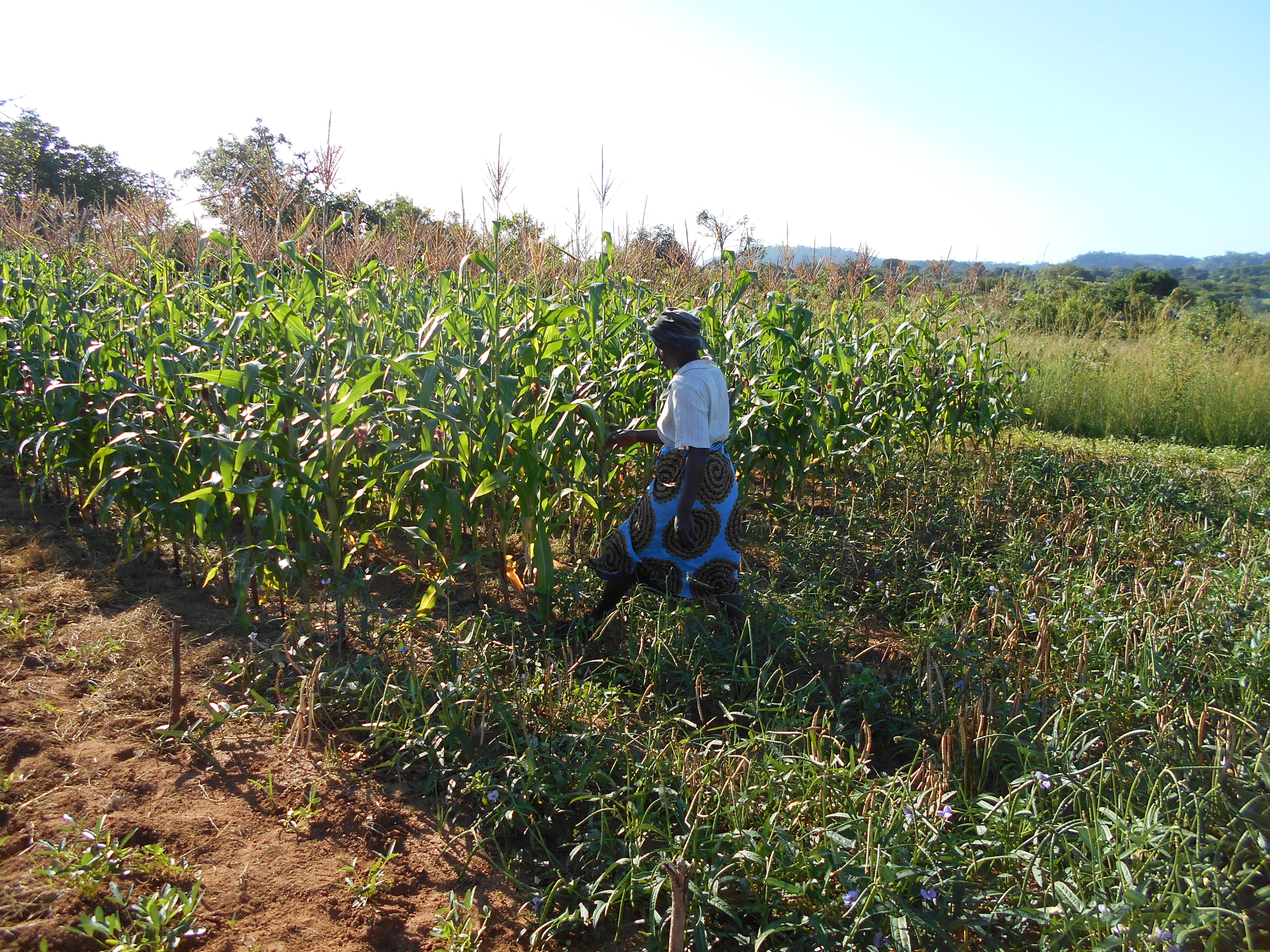
It was an early morning on March 12, 2020, when we entered Kiyasi Gwalale’s field in the Chebvute area of Masvingo, southern Zimbabwe. Gwalale participates in the Zambuko Livelihoods Initiative, funded by the United States Agency for International Development (USAID).
The Zambuko initiative aims to increase rural resilience against the negative effects of climate change. More than 70% of smallholders in Zimbabwe farm on sandy soils that are low in soil fertility and are increasingly affected by the vagaries of climate. The Gwalale family is an example of one of the millions affected.
In Chebvute, the International Maize and Wheat Improvement Center (CIMMYT) has established trials to test the effectiveness and productivity of conservation agriculture and climate resilient crop species since 2018. This has been in the form of “mother and baby” trials.
A traditional tool of breeders, “mother trials” show different technologies to farmers to allow them to select the best option. In Chebvute, these trials were amplified to demonstrate farmers’ crop management practices such as conservation agriculture, crop rotation with legumes and different drought-resilient crop varieties.
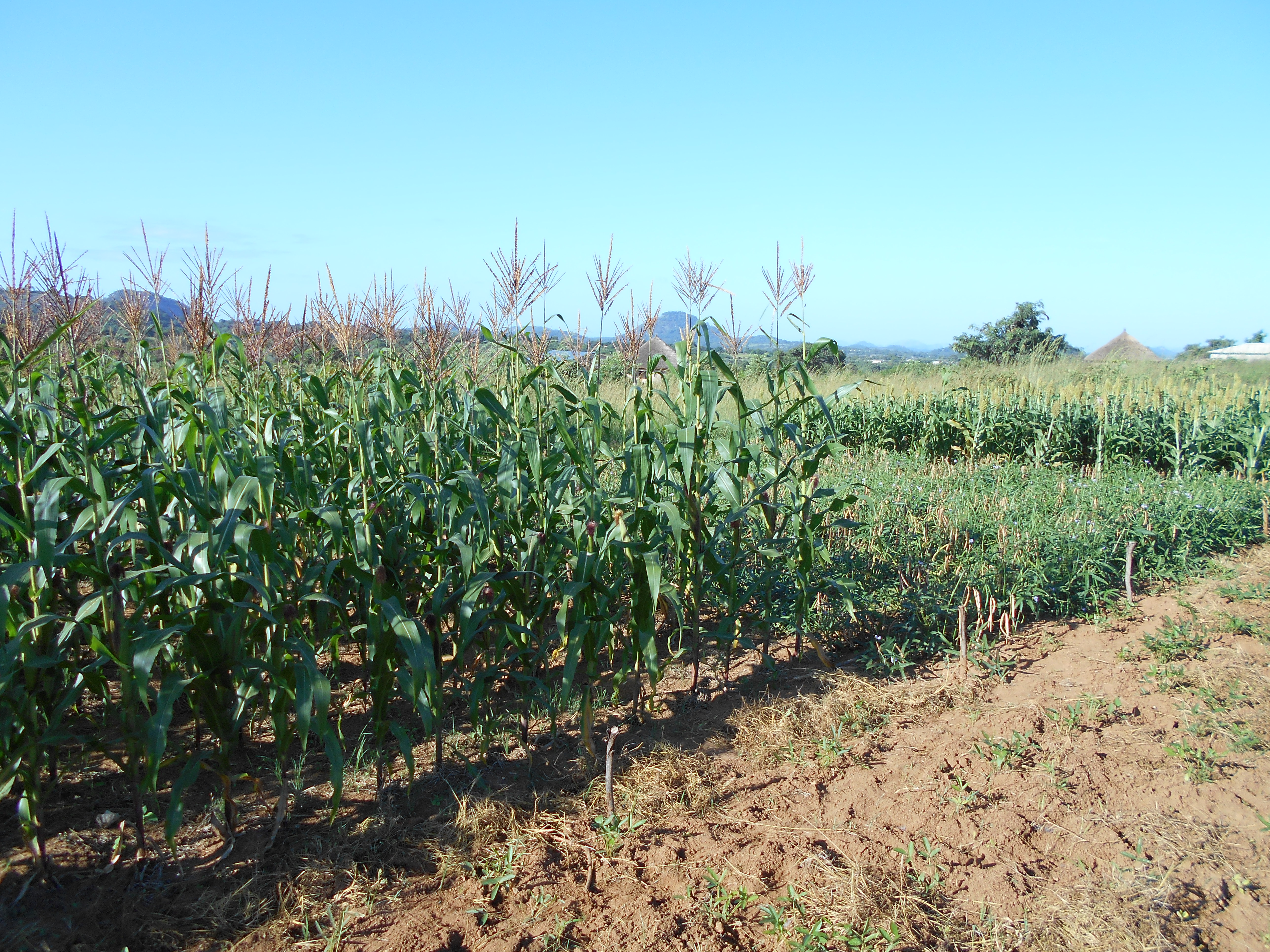
Baby trial farmers taking after their ‘mothers’
Since 2019, the best options have been taken on by follower farmers in so called “baby trials”, where they use a subset from the mother trials to gain first-hand experience with the technology. Learning by doing is a central concept of this approach.
Gwalale as a “baby trial farmer” learned from the mother trials that drought-tolerant maize varieties out-yield traditional varieties under conservation agriculture, but need to be rotated with legumes to also improve the soil and the nutrition of the farm household. In addition, she realized that planting white sorghum is a drought-resilient strategy in this area as small grains are less affected by in-season dry-spells.
Gwalale and her family have been resident in Chebvute for 15 years but farm only on 0.4 ha of land. With her husband and three children, she grows maize, sorghum, groundnuts and Bambara nuts. What she gets from these fields is barely enough to survive.
In the 2019/20 cropping season, a devastating drought lasting from mid-December to mid-January destroyed all her hopes that this year would be a better season. Instead, she went on an educational journey to find out how improved farming practices can make a difference in her own life.
“We planted this baby trial for the first time in December 2019, as we had seen from the nearby mother trials that these varieties planted under no-tillage seem to grow better than our own. We planted the baby at the same times as our own crops, but instead of tilling the soil and clearing the land, which we are used to, we just planted in riplines without tillage and covered the soil with mulch,” explains Gwalale.
“When the drought came, all my other crops in the tilled fields started to wilt and die — some did not even germinate. We could not believe what was happening in this baby trial”.
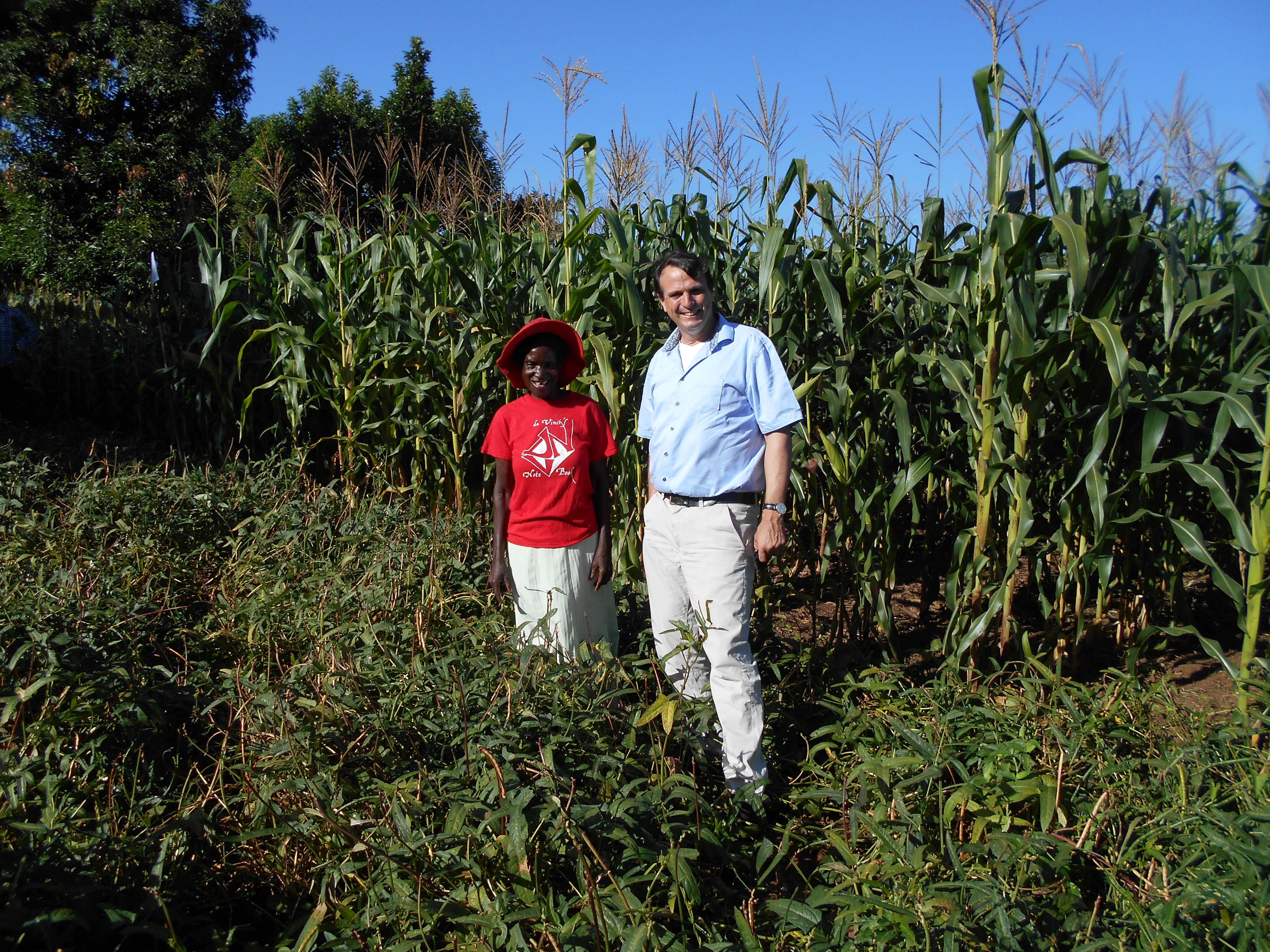
Resounding results in the baby trial
All crops in the baby trial survived the dry-spell and when the rains started to fall again in January, they continued to grow very well. Gwalale replanted the crops in the affected fields but they never caught up with the baby trial. Even after using the ripper to make more riplines, it was too late to experience the same wonder seen in the baby trial. “For now, we are yet to see how much we will get from this small field, but we learned a big lesson and want to expand our land area with this way of planting next year,” she says.
More than 200 baby trial farmers in Chebvute, the majority of which are women, have experienced the same in their own baby trials and realized that it does not take much effort to achieve food security.
Timely planting, conserving the soil and the moisture with conservation agriculture, effective weeding and application of adequate plant nutrients are the key ingredients of success. This can be learned effectively in a small plot such as a baby trial. Farmers have realized that it is possible to make a difference when they apply the principles of sustainable agriculture in their farming systems. The interventions introduced will help them to become more climate-resilient and ultimately more food secure.
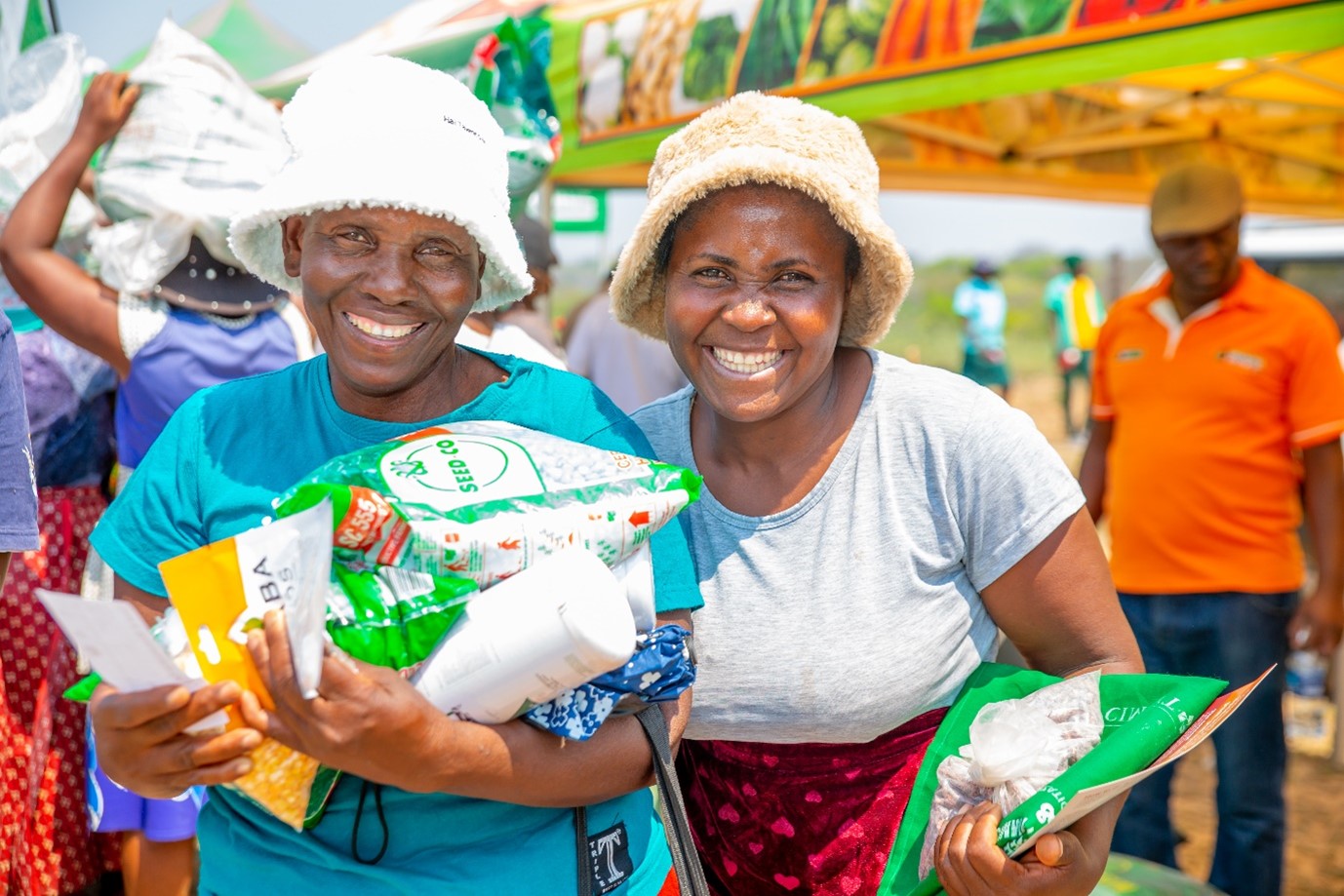
 Capacity development
Capacity development 
